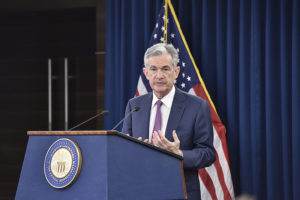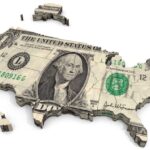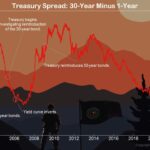
FOMC Chairman Powell answers a reporter’s question at the press conference.
The Fed wants inflation, for you, of course. The Fed can print as much money as it wants in order to get what it wants, so inflation doesn’t really matter to Chairman Jerome Powell or the other Fed governors. But how about your family?
Unless you have a printing press in the basement, you are feeling the inflation that has slammed American consumers hard this year. Yesterday’s CPI report was an alarm bell ringing on the toll inflation is taking on Americans. Will anyone at the Fed listen? How about the Biden administration? Unlikely.
They want inflation to help fund all their spending. Inflation is a tax, after all, one that hits the middle class the hardest. The Editorial Board of the Wall Street Journal hits Powell & Co. hard, writing:
How do you define transitory? Three months? A year? Or is it two? Inquiring minds want to know after Tuesday’s report that the consumer price index rose 0.9% in June. Consumer prices are now up 5.4% from a year earlier, so what the Federal Reserve means when it dismisses these price increases as “transitory” takes on growing economic and political significance.
The June increase was nearly twice what economic forecasters predicted, which isn’t reassuring. The inflation optimists are dismissing the June increase as the result of “special” factors that are likely to ease. Used car and truck prices rose 10.5% in the month, accounting for about half the increase in core CPI. No doubt vehicle prices won’t keep rising at that rate, but then that’s also what we were told when they rose 10% in April. This won’t reassure the non-affluent Americans who buy used cars.
Price increases were widespread across the economy, which suggests factors that may not be transitory. Food prices rose 0.8%, and energy prices 1.5% in the month. The Fed likes to strip out food and energy prices, which are volatile, to examine core inflation. But the core increase was also 0.9% in June.
Year-over-year core prices are up 4.5%, which is less than for all consumer prices, but is still well above the Fed’s target of 2% a year. The last time core prices rose 4.5% in a 12-month period was 1991 and the Fed’s benchmark short-term interest rate was above 5%. Today it’s near zero.
These price jolts aren’t likely to stir Fed Chairman Jerome Powell when he testifies on Capitol Hill this week. That’s because Mr. Powell is getting the inflation he wanted. The Fed’s new policy, which it unveiled last year, says that to achieve its 2% inflation target it is willing to tolerate inflation above that for some time. Congratulations, you’ve got it.
One risk for the Fed is that more months of these price increases will become what consumers and businesses come to expect. To use the Fed jargon, prices would no longer be “well-anchored.” That may be happening. The NFIB’s small business survey for June, released Tuesday, found the share of owners raising average selling prices rose seven points to 47%, the highest reading since January 1981.
Owners are under pressure to raise prices because their costs are rising, especially for labor. Some 46% of small-business owners reported job openings that couldn’t be filled in the month. This is one result of the market distortion caused by excessive federal jobless benefits that exceed what people can make by working.
The political implications of this inflation spike could be potent. The price increases mean that real average hourly earnings fell 0.5% in June. They are down 1.7% in the last year. This is despite healthy wage increases and hiring bonuses from employers desperate to find and keep scarce workers. If real wages continue to fall, workers will demand higher pay untied to productivity increases, which will further increase inflationary pressure. It will also take the shine off the post-pandemic boom that President Biden wants to take credit for.
The price increases put Mr. Powell in a monetary and political bind of his own making. Some at the Fed may feel obliged to tighten money sooner than Mr. Powell would like. But if he does, that would raise the cost of financing the trillions of dollars in new spending that Democrats in Congress have passed, or soon will.
Watch for Democrats to keep the pressure on Mr. Powell this week by coaxing him to endorse more spending. They know Mr. Powell’s term expires next year, and they want to leverage his desire for reappointment into a fiscal endorsement.
All of which makes us wonder why Republicans would want to put their fingerprints on any of this Democratic spending. Democrats and the Fed own this inflation spike. If Republicans help pass a $1 trillion infrastructure bill, Democrats will make them co-owners.
Action Line: If you’re retired or soon to be retired, you—more than anyone—need a plan to fight inflation. A fixed income is no place to hide from inflation’s bite. If you need help, I would love to talk with you.














